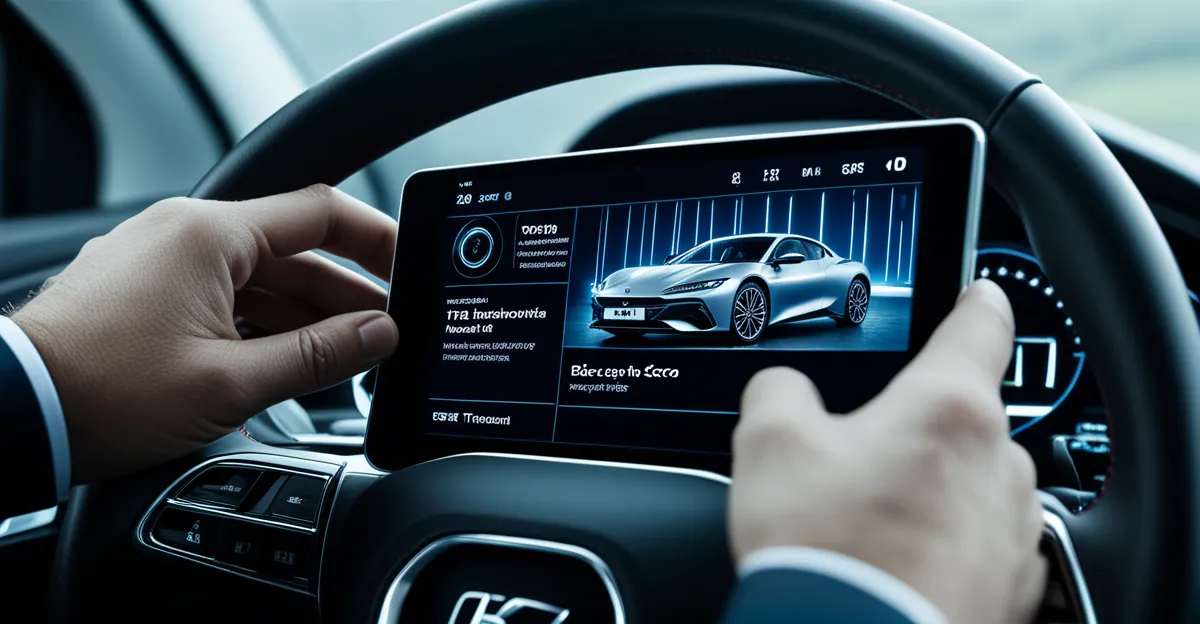Key Technological Innovations Transforming the UK Automotive Industry
The UK automotive industry is undergoing profound change driven by technological innovations that reshape vehicle design, production, and user interaction. Among the most influential advancements are electric vehicles (EVs), which are gaining momentum due to environmental concerns and government incentives aiming to reduce emissions. These vehicles rely on cutting-edge battery technologies and efficient electric drivetrains, making them a central pillar of the UK’s transition to sustainable transport.
Another groundbreaking domain is autonomous driving. UK-based companies and research hubs are pioneering systems that integrate sensors, machine learning, and mapping to enable vehicles to navigate without human input. This shift promises enhanced safety and efficiency on roads while opening new possibilities for mobility services.
Additional reading : How are UK automakers enhancing fuel efficiency in traditional vehicles?
Automotive AI plays a crucial role in both autonomous driving and predictive maintenance, powering smarter vehicle functions and enhancing user experience. Coupled with the rise of connected cars, which leverage internet connectivity for real-time data exchange, these technologies create a new ecosystem where vehicles communicate with infrastructure and other cars.
UK manufacturers are actively adopting these innovations, with companies integrating AI-driven diagnostics and developing EV platforms tailored to local demands. This synergy of electrification, automation, and connectivity firmly positions the UK as a leader in automotive technological innovation.
Also to see : What are the key innovations driving the UK automotive sector?
Impacts on Manufacturing, Supply Chains, and Employment
Technological innovations have profoundly reshaped automotive manufacturing in the UK, ushering in an era of smart factories where automation and digitalisation optimize production lines. Robotics and AI-driven systems now perform intricate assembly tasks with greater precision and efficiency, reducing errors and accelerating output. This transformation enables UK manufacturers to respond swiftly to market changes while maintaining high quality.
Supply chain innovation is another critical aspect. The integration of real-time data analytics and IoT devices into logistics allows for better tracking, demand forecasting, and inventory management. These tools minimize delays and disruptions, crucial given global challenges such as material shortages and geopolitical uncertainties. Adaptive supply chains ensure the smooth flow of parts essential for advanced vehicles like electric vehicles and connected cars.
The employment impact is complex. While automation reduces demand for repetitive manual roles, it simultaneously creates opportunities for skilled workers proficient in programming, robotics maintenance, and data analysis. Upskilling initiatives help the workforce transition toward these advanced roles, blending human expertise with automated processes. Hence, the sector’s evolution drives a shift in job profiles—from traditional assembly tasks to technology-focused careers—reflecting the dynamic integration of innovation in UK automotive manufacturing.
Sustainability and Environmental Benefits
Advances in electric vehicle adoption are central to improving automotive sustainability across the UK. Electric vehicles reduce dependence on fossil fuels, directly decreasing tailpipe emissions. This shift helps meet stringent emissions reduction targets set by government regulations and international agreements. By 2030, the UK aims to ban new petrol and diesel cars, accelerating the country’s transition to greener transport.
Innovations extend beyond propulsion. The industry increasingly integrates sustainable materials and promotes recycling to foster a circular economy. For example, advances in battery recycling lessen environmental impact by recovering valuable metals. Additionally, green manufacturing techniques minimize waste and energy consumption during vehicle production, complementing emissions targets.
Consumer demand also drives progress. A growing awareness of environmental impact encourages uptake of electric vehicles and eco-friendly mobility services. Regulatory incentives such as subsidies and tax breaks further stimulate this trend, supporting sustainable choices by buyers and manufacturers alike.
Together, these strategies create a comprehensive approach to environmental progress, aligning UK automotive innovation with global sustainability goals. This multi-faceted focus ensures the sector not only innovates technologically but also contributes positively to long-term ecological health.
Enhancing the Consumer Experience
The automotive user experience in the UK is rapidly evolving, driven by advances in connectivity and smart features that redefine how people interact with vehicles. Connected cars now offer seamless internet access, enabling real-time navigation updates, remote diagnostics, and integration with smartphones and home systems. This connectivity enhances convenience, safety, and entertainment.
Personalised mobility is another key trend. Subscription services and on-demand vehicle sharing provide flexible options beyond ownership, catering to varying lifestyles and reducing the need for car parking in urban areas. These services rely on sophisticated data analytics to tailor offerings to individual preferences, improving accessibility and user satisfaction.
Data-driven improvements have also made inroads into safety and infotainment. Advanced driver assistance systems powered by automotive AI react to road conditions and driver behaviour, helping prevent accidents. Meanwhile, infotainment platforms deliver customizable content, voice control, and seamless app integration, creating a more engaging driving environment.
Together, these innovations elevate the consumer experience by blending technology with practicality. UK manufacturers and service providers increasingly focus on delivering smart, connected, and personalised options, ensuring drivers benefit from the full potential of next-generation automotive technologies.
Regulatory Landscape and Government Initiatives
The UK automotive regulation framework strongly influences the pace and direction of technological innovations in the sector. Government initiatives focus on accelerating electric vehicle (EV) adoption and supporting research in autonomous driving and automotive AI. Key policies provide incentives such as grants and tax breaks for EV buyers, reducing upfront costs and encouraging consumer uptake. These measures directly contribute to emission reduction targets and environmental goals.
Public-private collaborations play a pivotal role by funding testbeds and innovation hubs, enabling companies to develop and trial connected car technologies under real-world conditions. Additionally, regulations promote data security and interoperability standards essential for connected cars to function safely and effectively on UK roads.
Compliance demands also challenge manufacturers to meet stringent safety and environmental standards, triggering investments in cleaner production methods and AI-powered quality control. The evolving regulatory landscape requires industry players to stay agile, balancing innovation with adherence to legal frameworks.
In summary, UK government incentives and policy innovation create a supportive environment for technology integration while addressing safety, sustainability, and consumer confidence. This regulatory foresight propels the UK automotive industry toward global competitiveness and sustainable transformation.
Future Outlook, Trends, and Opportunities for the UK Automotive Market
The future of UK automotive is shaped by accelerating adoption of technological innovations, especially in electric vehicles, autonomous driving, and automotive AI. Market trends indicate continued growth in EV sales as infrastructure improves and consumer awareness rises. Forecasts project a steady rise in autonomous vehicle trials and deployments, leveraging advancements in AI and connectivity to enhance safety and efficiency.
Key challenges persist. Infrastructure demands, such as expanded charging networks and 5G connectivity, require significant investment. Consumer readiness varies, with some hesitant to adopt new technologies without clear benefits or regulatory assurances. The need for skilled labour to maintain and develop these technologies also pressures educational and training systems.
However, opportunities abound. The UK’s expertise in automotive AI and connected cars positions it well for leadership in developing next-generation vehicles and mobility services. Industry-government collaboration can foster innovation hubs, accelerating commercialization and exports. Embracing sustainability trends aligns with global demands, potentially opening new markets.
In summary, the UK automotive sector stands at a transformative crossroads. With strategic investment and policy support, it can advance technological adoption, overcome hurdles, and capitalize on emerging global opportunities to maintain competitive advantage.








